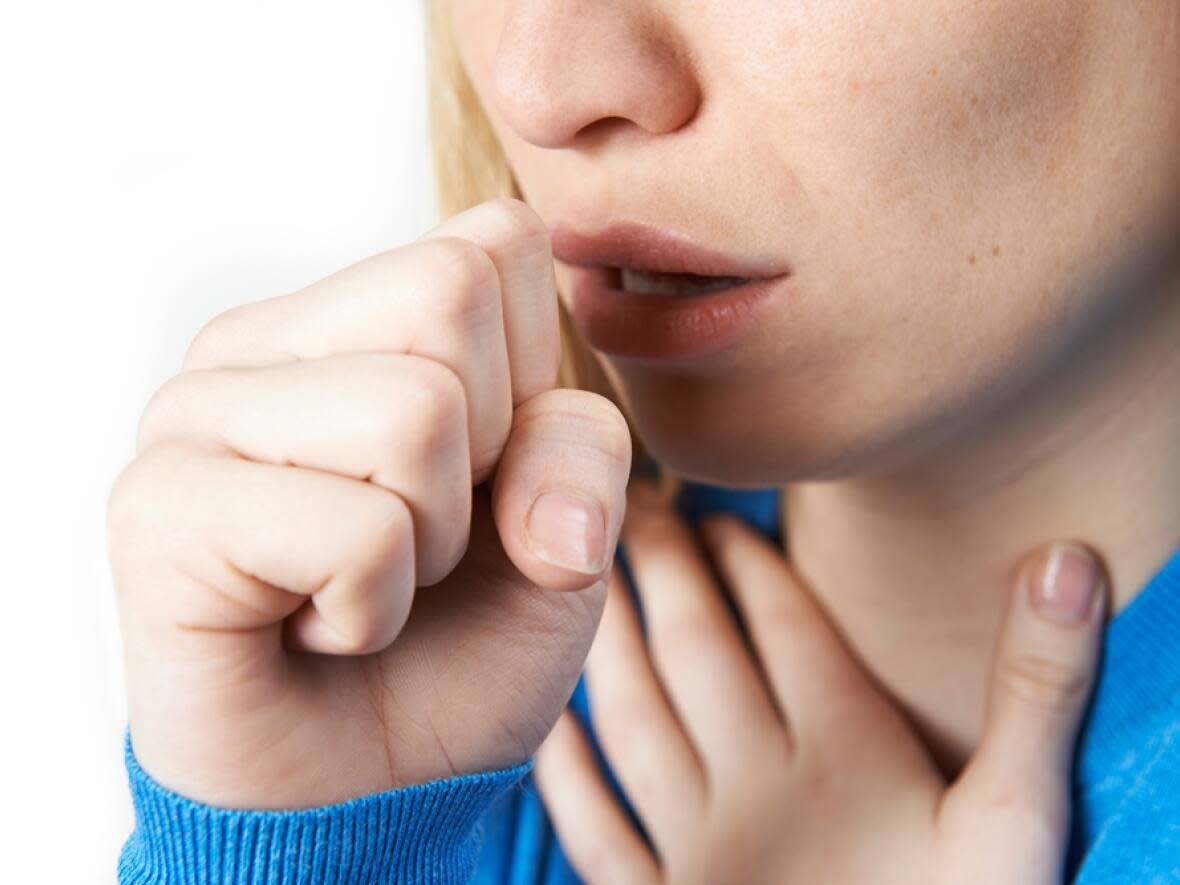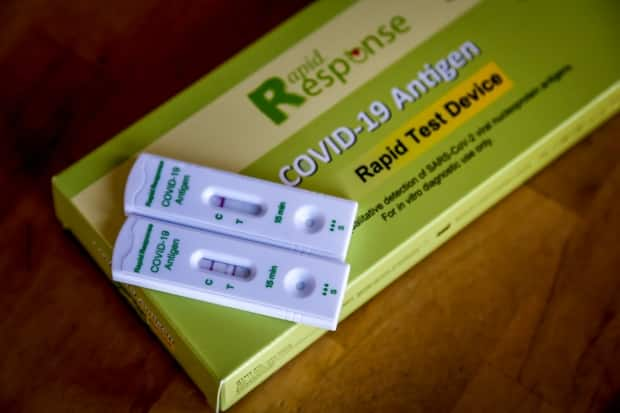Having these items on hand might help if you catch COVID-19

When Robin Goodfellow started experiencing COVID-19 symptoms, she wasn't as prepared as she'd have liked to have been.
The Kamloops, B.C., resident tested positive for the coronavirus in December, and had chest pain, congestion and loss of taste and smell, among other symptoms. Her illness lasted about two weeks — a long time to be unable to go to the store and get the foods and medicines you want or need.
"I kind of always have Tylenol, Advil, stuff like that," Goodfellow said. "I didn't have Gatorade. I didn't have something easy to eat, like a fruit cup or an apple sauce or anything like that."
Provincial Health Officer Dr. Bonnie Henry has said it's "very" likely all British Columbians will be exposed to the virus at some point.
Anyone with symptoms of COVID-19 must self-isolate until they feel better. Those who test positive for the virus are required to self-isolate for at least five days, or 10 days for those who are unvaccinated.
West Vancouver, B.C., physician Dr. Maryam Zeineddin and her family caught COVID earlier this month and have all recovered or are recovering.
She said there are items they relied on to get through the illness.
Medicine
Over the counter medicines to have on hand in the event you fall ill include ibuprofen (Advil) and acetaminophen (Tylenol) for fever and body aches, Zeineddin said.
"Don't sit in dire pain and worry," she said.
Although everyone's symptoms will be different, she said an over-the-counter cough suppressant could come in handy, as well as a nasal spray such as Flonase to help combat fluid build up in sinuses. Additionally, a saline rinse would work.
Lozenges may also come in handy if you end up with a sore throat and cough.

She said many of her patients have found cold and flu relief products like NeoCitran helpful, but she urges people to contact their health-care provider before taking it, especially with other medications.
Zeineddin said vitamin D3 is useful before, during and after COVID to boost the immune system.
Food
Being well stocked with regular groceries — even just a few key items — is helpful because delivery times from supermarkets can take more than two days in some cases, and you won't be too reliant on quick deliveries from friends.
Zeineddin said soups, decaf teas, honey, lemon and lime are essential as they help nourish and hydrate.
Goodfellow said she also relied on fruit cups and apple sauce — both easy to eat when you have a sore throat. Sugar-free Gatorade and juice helped her stay hydrated, and ginger ale helped aid her upset stomach.
She said she also used spicy food to help her regain her sense of taste.
Comfort items
Goodfellow said she couldn't have made it through those two weeks without a supply of clean towels, because she was constantly bathing to try to feel more comfortable.
She recommends keeping up with laundry, so that if you do contract the virus, you're not doing laundry while dealing with fatigue and shortness of breath.
"When I was feeling really congested, I was showering sometimes three or four or five times a day just to try to get relief," she said.
"Some [people] out there live with, like, one towel and that's it. You're going to be kind of hooped because good luck dragging yourself to the laundry room to do laundry."
Anything that brings you additional comfort, like clean towels, pillows, candles or a good book are good to have on hand, Zeineddin said.
Having people to call when you're lonely, or who can pick up items for you as you require them is an important part of maintaining mental health while dealing with the physical illness, she said.


